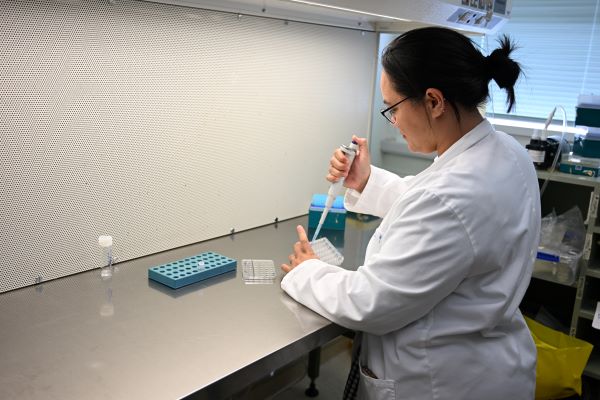
Stem cell ART: using stem cells to develop and improve assisted reproductive technologies

Dr Blaise Forrester-Gauntlett in the laboratory (photo supplied).
Animal welfare is an increasingly concerning topic for many in Aotearoa as the understanding of the processes and practices being carried out on-farm become more widely available and undergo closer scrutiny. Strategies are needed to address the sustainability of the dairy sector in relation to: The number of unwanted male dairy calves produced; Improving the targeted production of elite dairy and beef animals as breeding replacements within their respective herds; Increasing the “beefiness” of non-replacement animals from the national dairy herd to increase economic value; Increasing the genetic gain of both dairy and beef stock within New Zealand. Improvements will have flow on effects to improve production efficiencies and help to create a more circular economy. It will reduce greenhouse gas emissions, and increase animal welfare outcomes.
Current Assisted Reproductive Technologies (ART) are not without their own animal welfare issues, are time and cost limiting, and are unable to keep up with demand for use in our seasonally-driven pasture-based dairy systems. Stem cell research in agricultural animals in New Zealand offers the opportunity to develop and improve ART for cattle. Using stem cells we could accelerate genetic selection using multi-factorial dam/sire matings to generate elite embryos. Embryo multiplication could then be carried out year-round using ART to generate high-value beef embryos for cryopreservation and eventual transfer into dairy recipients in spring. The increased availability of these embryos and a better understanding of the management and prevention of animal welfare issues would increase the accessibility of ART across New Zealand and the Pacific.
